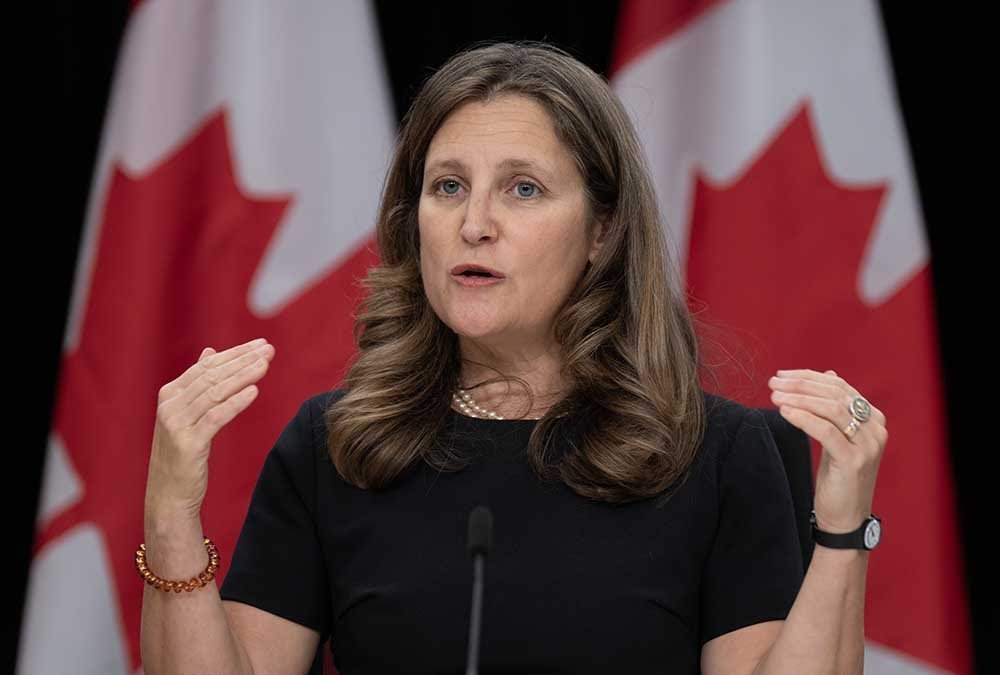Freeland facing challenging fiscal environment ahead of budget
THE CANADIAN PRESS/Adrian Wyld
The economic data provides both good and bad news for Finance Minister Chrystia Freeland, who is in the final stages of preparing her 2024 budget.
One person who will be anxiously waiting for lower rates is Freeland.
Official Ottawa is still waiting word on when the 2024 fiscal planning is coming, but it’s increasingly looking like the budget won’t be tabled until early April. She’s facing a challenging fiscal environment.
Preliminary monthly fiscal reporting from the finance department shows program expenses are growing at a much faster pace than projected just a few months ago when Freeland released her fiscal update.
In the first nine months of the current fiscal year (April through December), program expenses are up 6.6 per cent. The government had forecast growth of just 0.8 per cent in November. That’s a big miss.
As economists at Desjardins have been pointing out, the government is struggling to rein in direct operating expenses – the machinery of government costs. Freeland projected in November that these expenses would drop 8.1 per cent in the current fiscal year. Instead, government operational spending is up 6.3 per cent so far.
According to Desjardins, if current trends persist, the deficit for the current fiscal year will be well in excess of $60 billion, versus $40 billion projected by the government.
This suggests a very slow start to the series of cost cutting efforts and planned spending reallocation announced in last year’s budget.
The continued strong pace of government spending comes as pressures on the fiscal envelope continue to mount.
For example, the 2024 fiscal plan may see an expansion of the government’s tax credit framework for green investments to new sectors. The Canadian government is also in the middle of negotiations with the nation’s largest oil firms to fund so-called contracts for difference – a financial backstop that would derisk major carbon capture projects.
There is additional funding for Ukraine, worth $3 billion for this year. Freeland also needs to find resources to fund a new pharmacare program, with a starting cost of just under $1 billion, and whatever else the government deems new priorities.
The resulting trajectory threatens to jeopardize Freeland’s promise to cut the deficit permanently to below one per cent of GDP by 2026, at least without any new taxes.




